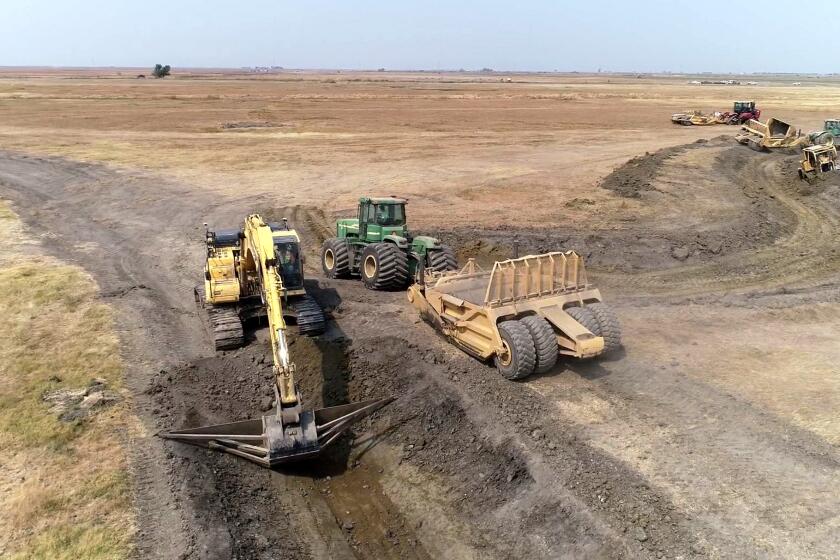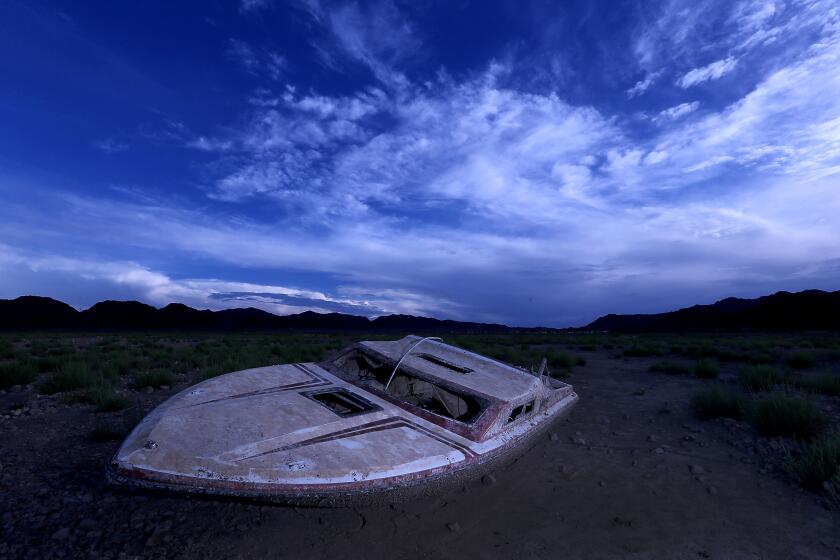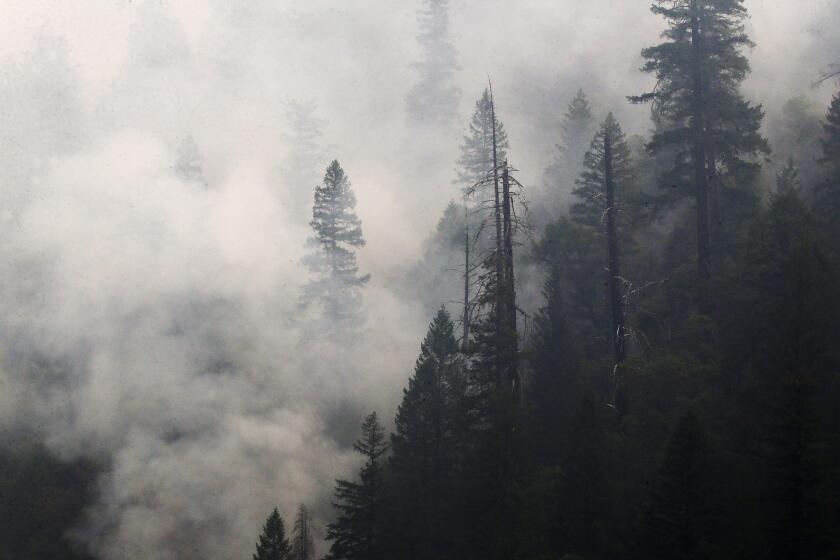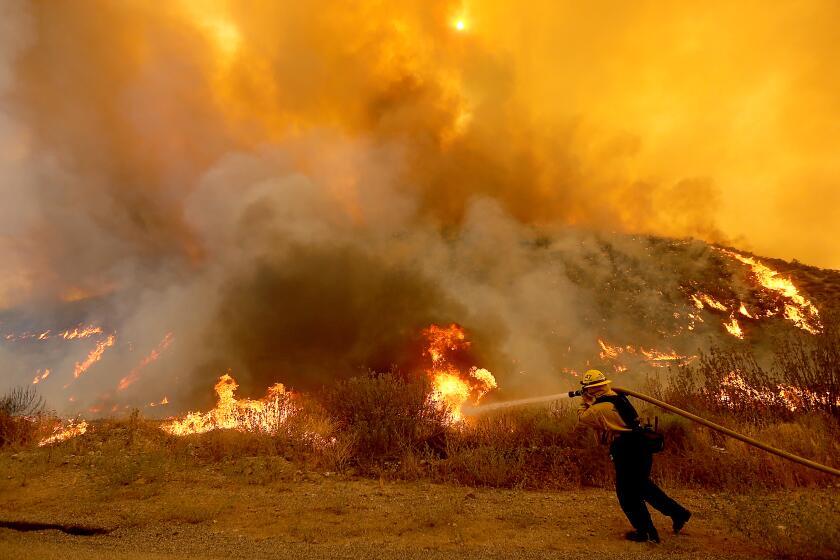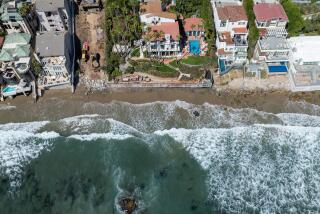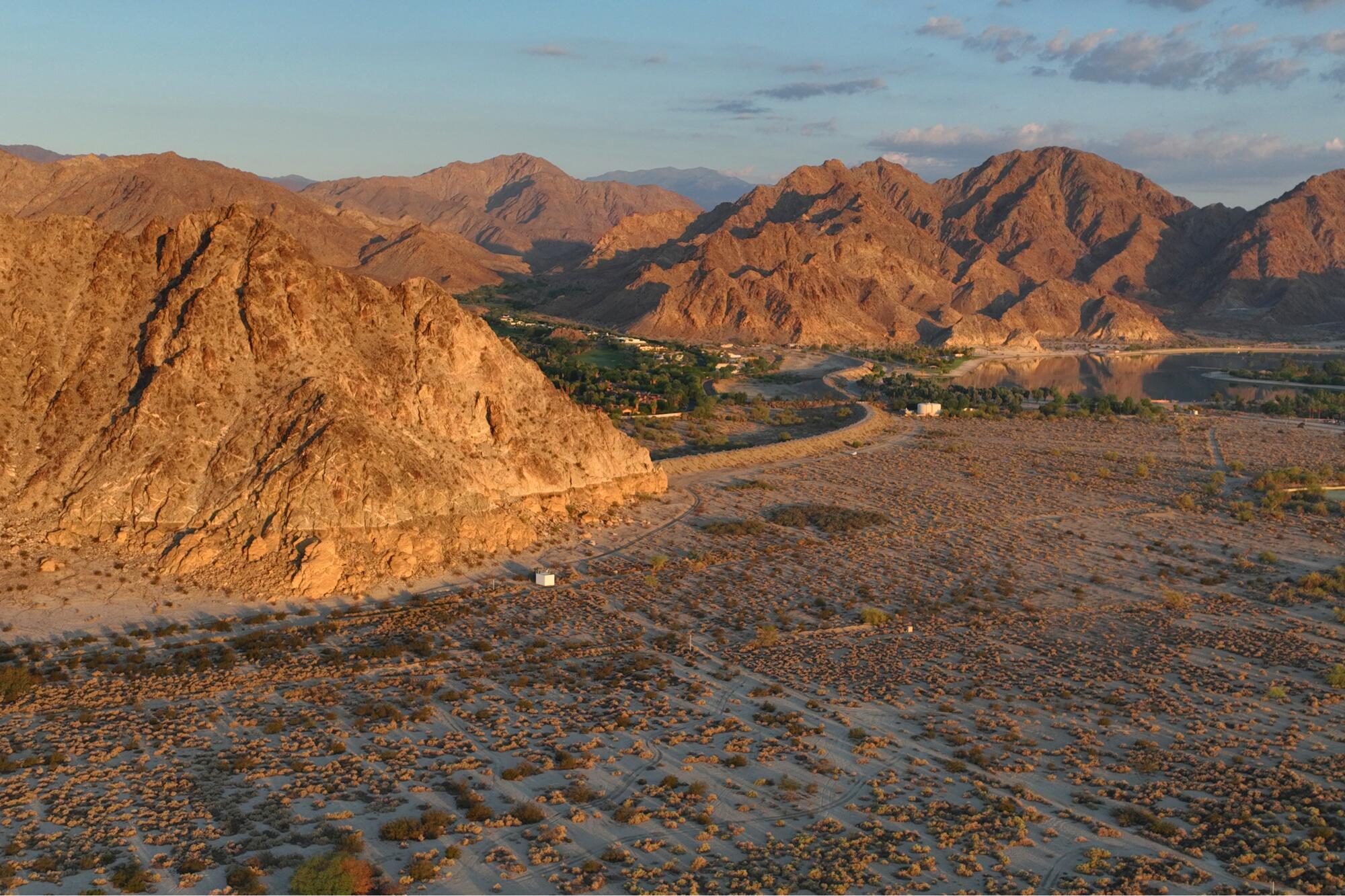
- Share via
LA QUINTA, Calif. — In a part of the Coachella Valley where exclusive neighborhoods wrap around lush golf courses and ponds, a stretch of open desert could be transformed into a new sort of artificial oasis.
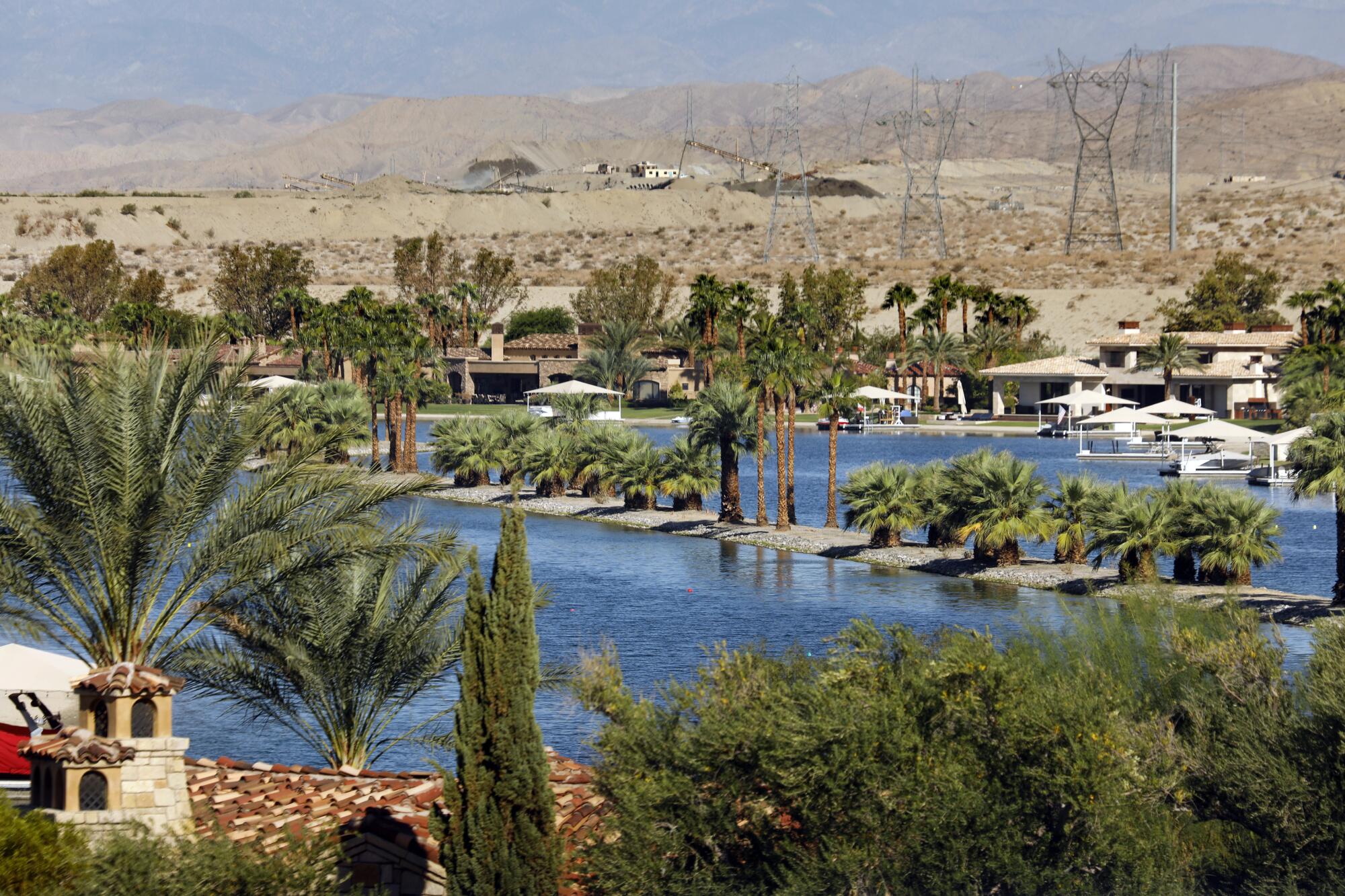
A developer has plans for hundreds of homes and a resort featuring a surfing lagoon. If La Quinta’s City Council endorses the proposal, the sandy ground at the base of the Santa Rosa Mountains would become the site of a 12-acre pool where surfers could take off on sculpted lines of peeling waves.
A group of residents has organized to fight the proposed wave pool, and one of their primary concerns is water. They argue that, with the Colorado River in a shortage and the Southwest getting hotter and drier with climate change, the area can’t afford to have millions of gallons of precious water filling the giant water feature.
“It’s mind-boggling,” said Alena Callimanis, a resident. “You just can’t do a surf park in the middle of the desert, and here, with our drought conditions. It’s just crazy.”
Callimanis and others formed La Quinta Residents for Responsible Development last year to oppose plans for the wave pool. They say the water should instead be saved, and that surfers can drive about two hours to the Pacific coast to find plenty of waves. They argue that it’s wrong to be allowing new surf parks while Californians are being told to conserve water.
California officials say a marsh restoration site provides key fish habitat. Critics say much of the land is too high above sea level to benefit fish.
“There’s got to be a moratorium on this type of building, this type of excess water use,” Callimanis said, looking across the property, its dry soil dominated by creosote bushes. “Why do we have to reproduce an ocean wave experience in the middle of the desert? This is the desert, for Pete’s sake.”
That outrage is part of a larger debate over how life and commerce should adapt to worsening water scarcity in a valley that has long been marketed as a desert playground.
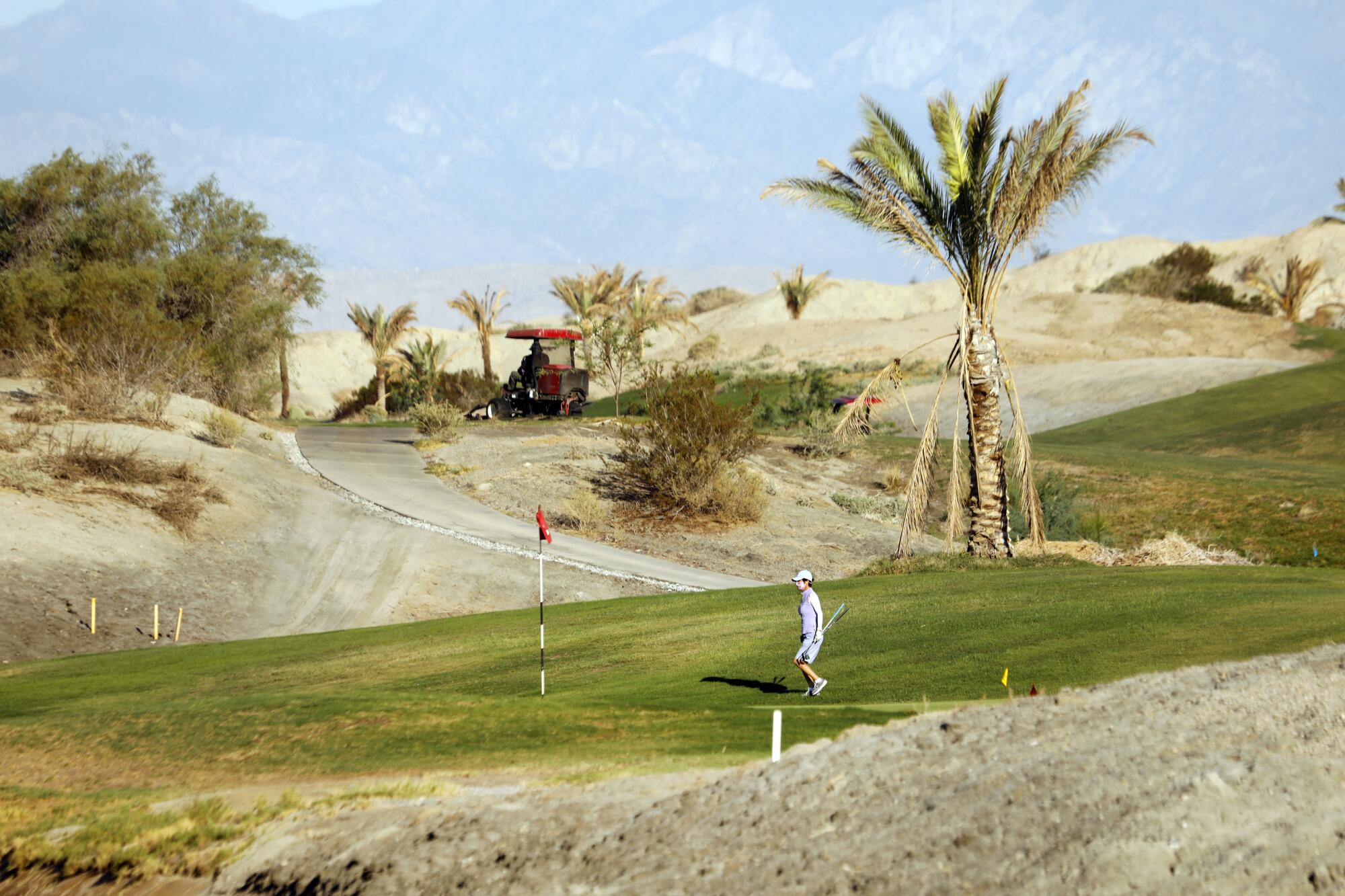
There are about 120 golf courses in the Coachella Valley, which depend on groundwater pumped from wells and water imported from the shrinking Colorado River, as well as some recycled water. The area’s many lush, grass-filled developments have contributed to some of the highest residential per-capita water use rates in the state.
For decades, the valley’s resort aesthetic has featured cascading waterfalls, swimming pools and lakes where residents can water ski or moor their boats at private docks. The 18-million-gallon surf park in La Quinta is one of at least five wave pools or lagoons that are planned here.
The developer of the 386-acre Coral Mountain project is requesting a zoning change for what was once slated to be a residential development with a golf course. Instead, they now want to build the wave park along with 600 homes and a hotel with up to 150 rooms.
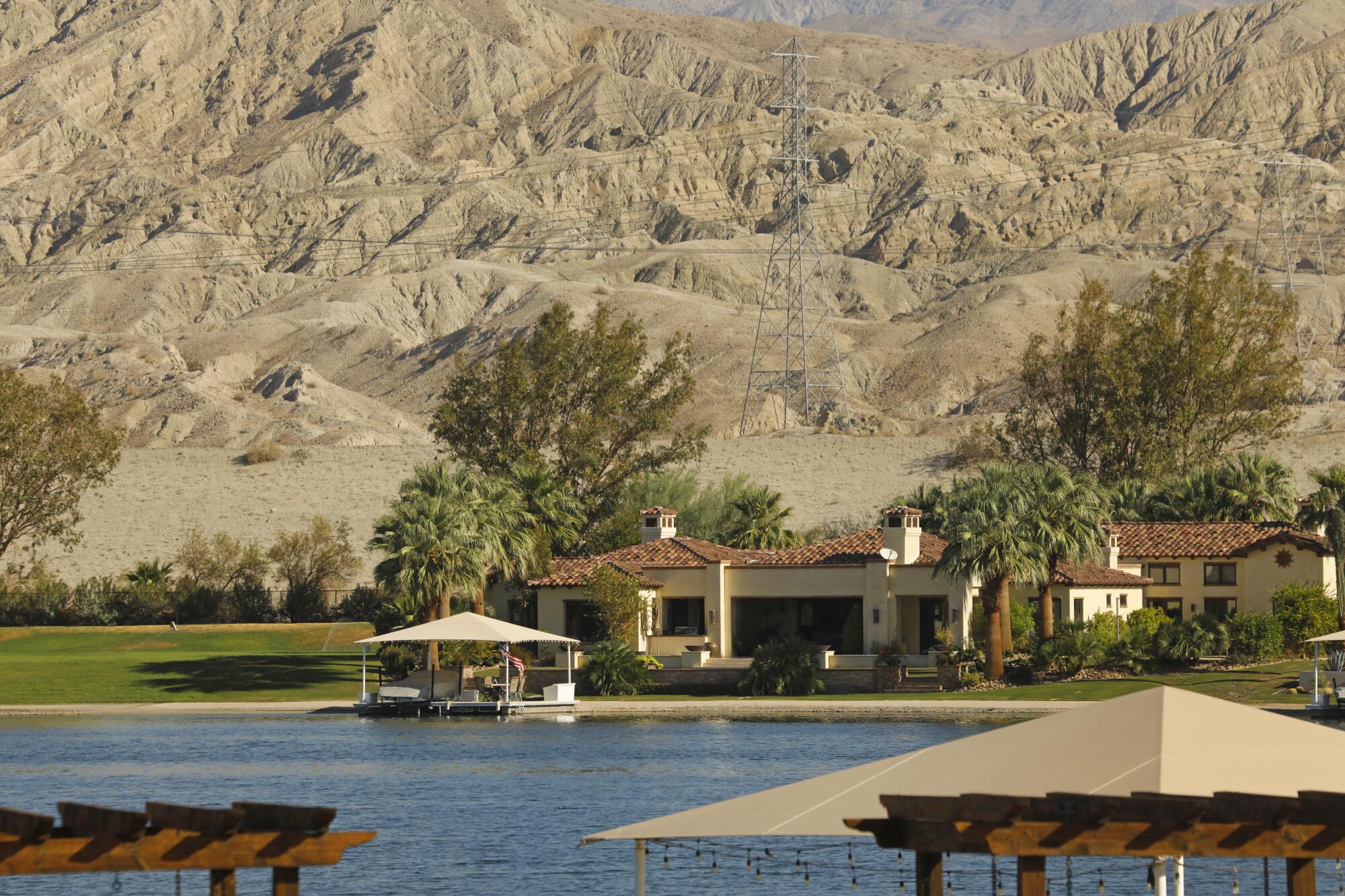
“We are designing this project to be a model of water efficiency,” said John Gamlin, president of CM Wave Development, LLC. Opponents, he said, have been “driven by perception and optics, as opposed to the reality of how water is used in the Coachella Valley.”
La Quinta’s City Council is expected to vote on the proposed zoning change at a public hearing on Wednesday.
The oblong wave basin, dubbed the Wave, would stretch almost half a mile, with water covering just over 12 acres. It would generate waves up to 6 feet high.
As reservoirs decline on the Colorado River, California water agencies are under pressure to shoulder a substantial part of the inevitable cuts.
The wave basin would be the second in the country to use technology from the Kelly Slater Wave Company. In 2015, Slater caused a sensation when he first shared a video of himself surfing a flawless barreling wave miles from the ocean. The 11-time world champion told an interviewer that the Central Valley surf ranch has better waves than the California coast “99% of the time.”
The proposed project would sit at the base of Coral Mountain, which towers above the desert floor. Gamlin said the natural backdrop is part of the site’s draw. For the Coachella Valley to remain an attractive destination, the area should broaden the recreational amenities it offers, he said.
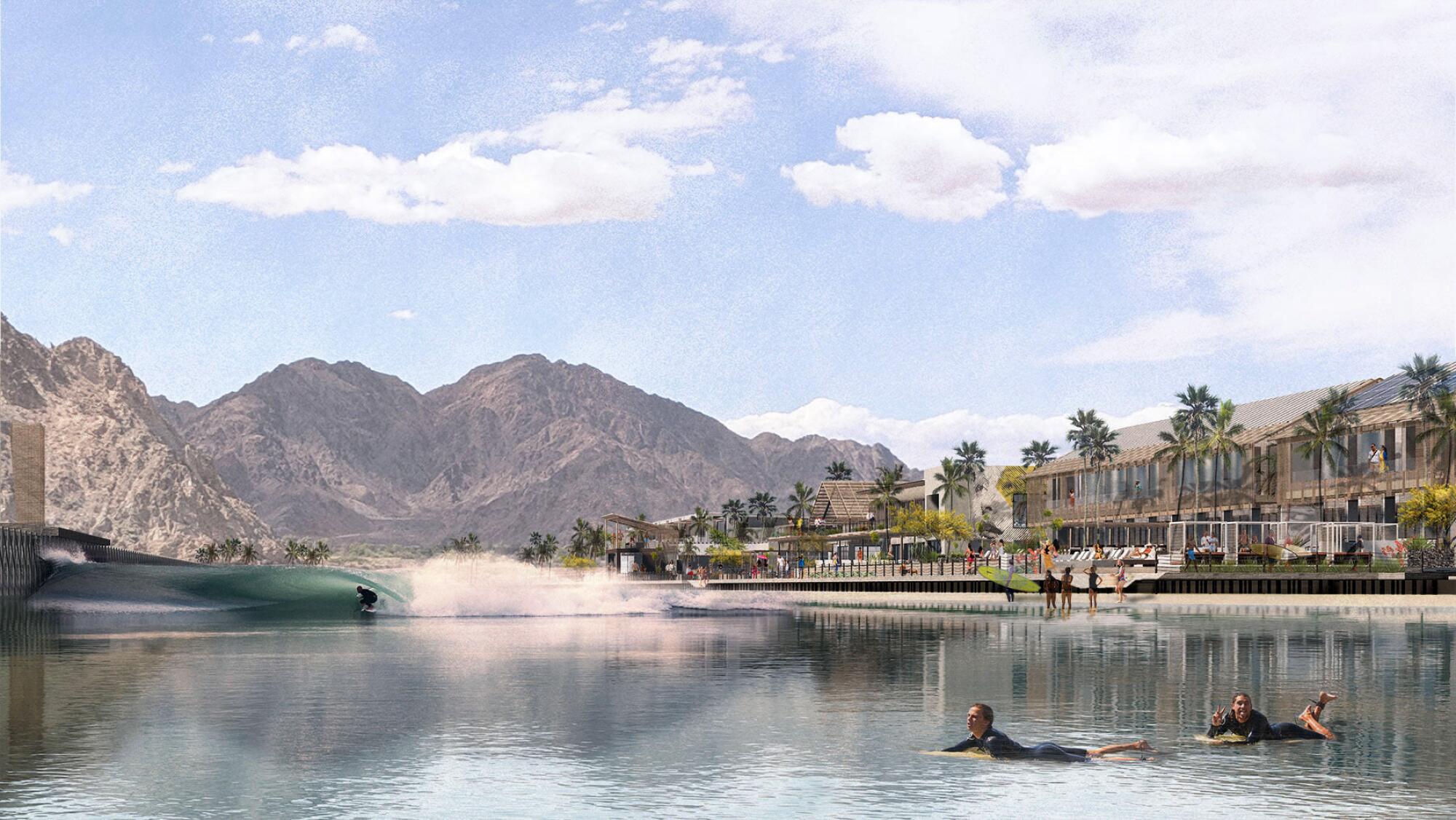
“Development in the Coachella Valley is lifestyle-driven,” Gamlin said. “You have to create some sort of a lifestyle as the centerpiece of why people want to come here.”
The wave basin’s annual water use is estimated at 26 million gallons, including water that would need to be pumped to make up for evaporation, Gamlin said. Opponents have disputed that estimate, arguing that with crashing waves and heat, evaporation would require significantly more water.
Gamlin said a single golf course in the desert consumes much more, with some using as much as 1 million gallons a day.
According to the developer, the wave basin would account for less than 13% of the project’s total water use. The Coachella Valley Water District endorsed the development’s total water use — more than 900 acre-feet a year — in 2020 as part of a state-mandated assessment under which large developments with more than 500 homes are required to have sufficient water supplies based on 20-year projections.
As wildfires become more extreme, some worry California will near a tipping point in which its forests emit more carbon dioxide than they absorb.
The wave basin would be filled from a shallow private well that can pump water considered “non-potable,” Gamlin said. That water would be disinfected and filtered before going into the wave pool.
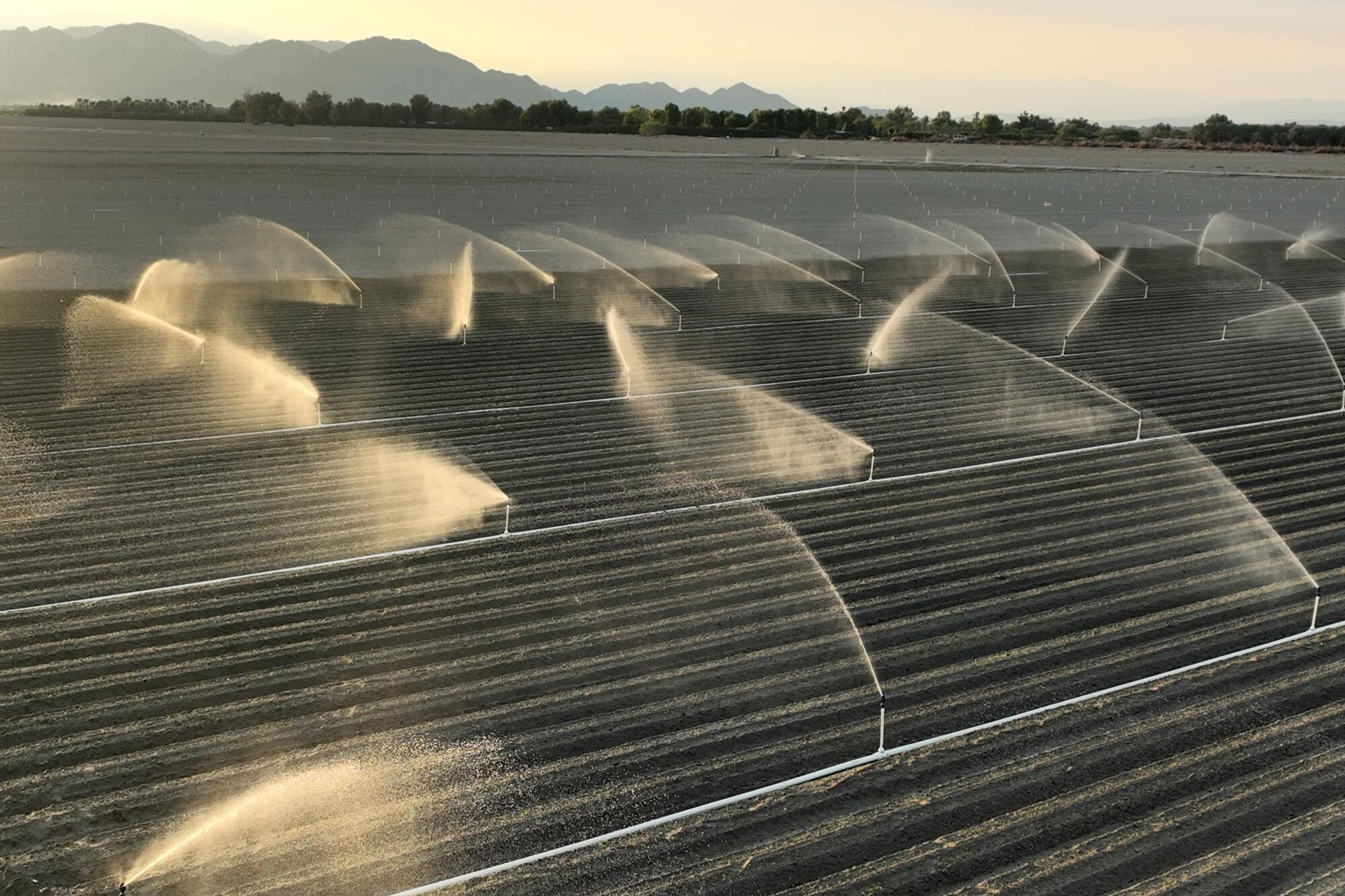
Colorado River water is also available from the Coachella branch of the All-American Canal, he said, and could be used to irrigate common areas and possibly front yards.
Near the property, Colorado River water is routed to ponds at a groundwater replenishment facility, recharging the aquifer.
Thomas E. Levy, an engineer and former general manager of Coachella Valley Water District, wrote on behalf of the developer saying water cutbacks planned along the Colorado River will not significantly affect the district’s ability to “deliver potable water” in the area.
The Colorado River’s flow has shrunk dramatically during 23 years of extremely dry conditions that research shows are being amplified by global warming.
Southern California water districts are now under pressure to shoulder substantial reductions as the federal government pushes for solutions to prevent the river’s reservoirs from dropping to dangerously low levels. Without major reductions, the latest projections show worsening risks of Lake Mead and Lake Powell approaching “dead pool” levels, where water would no longer pass downstream through the dams.
Gamlin said in a written response to questions from The Times that the project is designed to maximize water efficiency in various ways. He said the developer plans water-saving fixtures, has reduced the size of the wave basin and has eliminated other water features that were originally part of the plan. Aside from the wave basin, there would be one lake used for mixing and storing water for the lagoon and outdoor irrigation.
“We certainly understand water concerns and the urgency to improve the management of resources,” Gamlin wrote. He argued that “careful management” of the groundwater basin has put the Coachella Valley in a better situation than other parts of the state, adding that the development’s proposed water use is factored into local water plans.
Some experts say the restrictions create more barriers to doing controlled burns precisely when the need for them is most acute.
The developer has also offered to contribute money for lawn-removal rebates in La Quinta, matching the water district’s existing rebate of $3 per square foot of grass removed. Gamlin said the water conserved with those incentives would more than make up for the water that would be pumped for the wave basin.
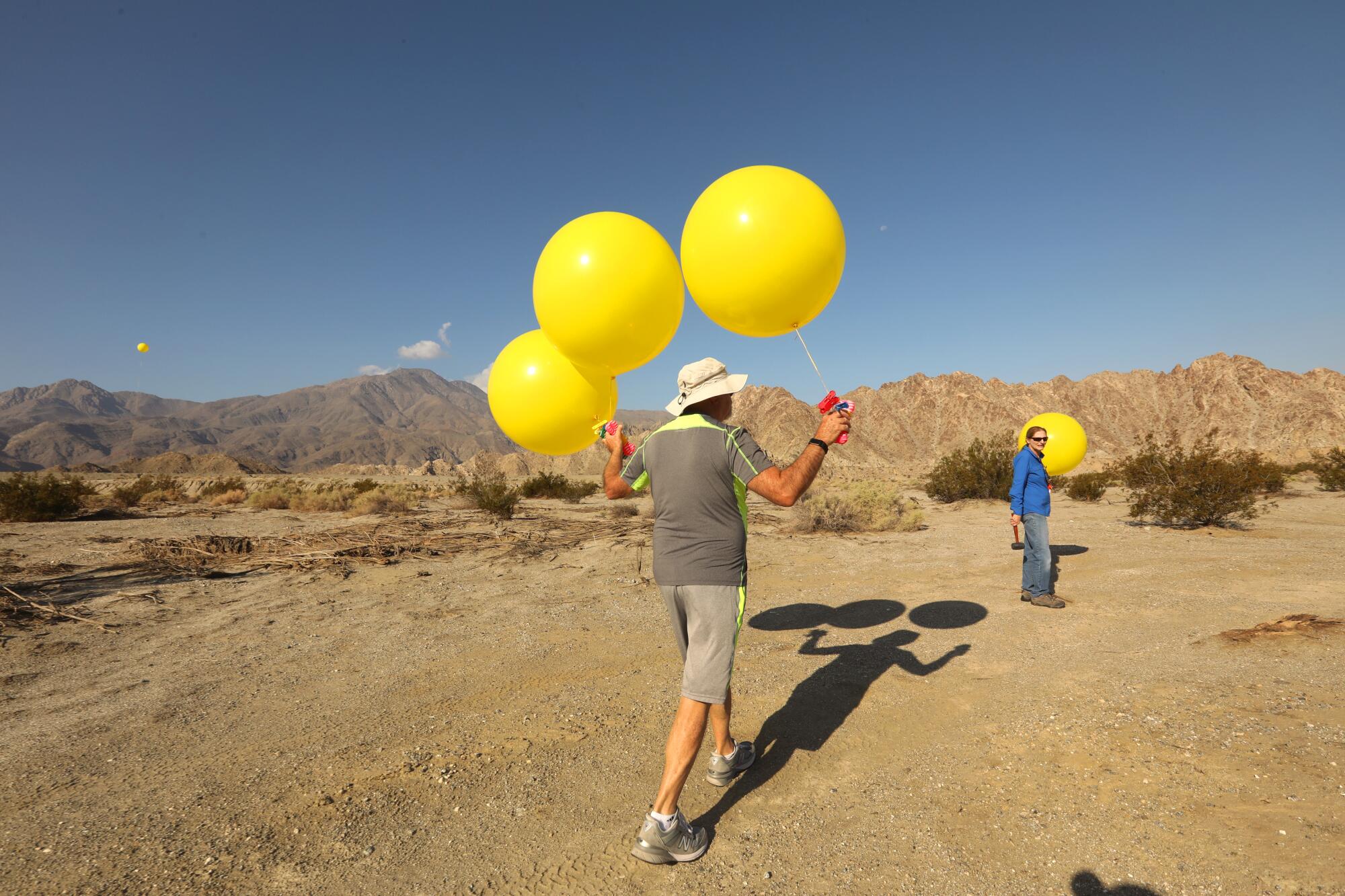
Callimanis and other opponents are not convinced. They say homeowners should be taking out grass, and golf courses should be reducing their water footprint too, but it shouldn’t be done to help a developer fill a wave pool.
Callimanis pointed out that the water district has started charging drought penalties on water bills when residents fail to reduce outdoor water use 10% below their budget.
“How can you say you have enough water for surf parks and lagoons? Yet you are penalizing us if we don’t drop beyond 10% of our current outdoor usage,” Callimanis said. “There’s a huge disconnect, and the community is up in arms.”
A nearby development with a larger 20-acre surf lagoon, Thermal Beach Club, has already been approved by Riverside County supervisors. In Rancho Mirage, construction has begun at Disney’s Cotino development, which will include a 24-acre lagoon, this one without waves. Two other wave pools are in the works in Palm Desert and Palm Springs.
News coverage of the plans for surfing lagoons in the desert has drawn scorn from comedian John Oliver, who declared on “Last Week Tonight” that it’s “just monumentally stupid.”
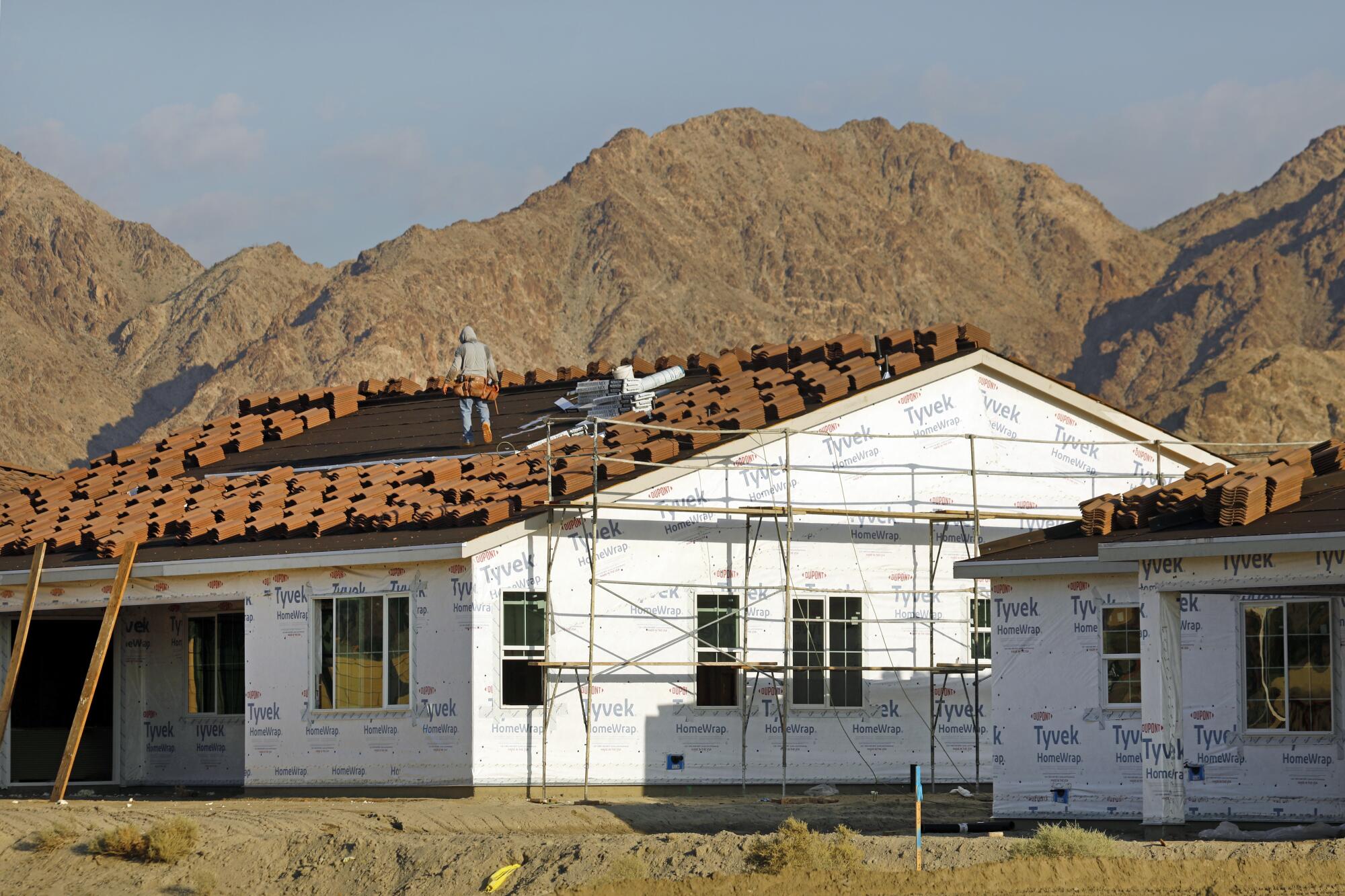
But some La Quinta residents have written to the city to voice support, saying the wave basin would be a unique attraction that would boost tourism, bring jobs and increase tax revenues.
For now, the land remains an open expanse of the Colorado Desert, near areas where coyotes and bighorn sheep roam. According to residents, some of the land was once a dude ranch, and there was also a cotton farm years ago. Now, the ruins of an adobe house stand among the creosote bushes.
On the side of Coral Mountain, a dark line marks what people call the “bathtub ring,” the shoreline of ancient Lake Cahuilla, which centuries ago was filled by the Colorado River. A close look at the rock reveals coral-like tufa deposits left by that phantom lake. On the ground, shells are scattered in the sand.

Standing on a road beside the property, Colin Barrows said he thinks it’s irresponsible to build surfing basins.
“We’re looking down the barrel of climate change and drought,” said Barrows, a naturalist and board member of the CactusToClouds Institute. He said there simply isn’t enough water anymore for miles of grass and artificial lakes, especially as the hotter, drier climate takes a worsening toll on the Colorado River.
“Eventually, the water is going to run out. It’s just not going to be there,” Barrows said.
“Those ponds are, almost without a doubt, going to be lying empty,” he added. “They’re just going be empty concrete lakes.”
More to Read
Sign up for Essential California
The most important California stories and recommendations in your inbox every morning.
You may occasionally receive promotional content from the Los Angeles Times.
